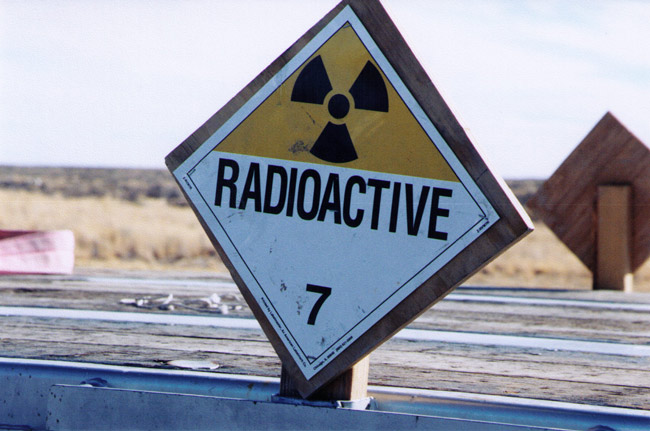
A controversial Progress Energy Florida project to build two nuclear reactors in Levy County will not start producing electricity until 2024 — and likely will cost between $19 billion and $24 billion, the company said Tuesday.
Progress released the information as it notified state regulators that it will seek to collect $151.7 million from customers in 2013 to pay for work on the Levy County project and for upgrades at an existing nuclear plant at Crystal River.
The Levy project, which Progress has been pursuing since 2006, is behind its original schedule and has faced escalating costs. As recently as 2009, for example, the company said the plant could start operating in 2016 and estimated the cost of the two reactors at $14 billion, with an additional $3 billion needed for new transmission equipment and lines.
Vincent Dolan, the utility’s president and chief executive officer, said in a prepared statement Tuesday that building the 1,100-megawatt reactors is important as Progress deals with a series of future issues, such as cutting carbon emissions and reducing reliance on natural gas and coal to fuel power plants.
“The Levy County nuclear project continues to be the best long-term base load generation option for Florida when evaluating cost, potential carbon regulation, fuel price volatility and the benefits of fuel diversification,” Dolan said in the statement. “State-of-the-art nuclear power is important to reduce the carbon intensity and improve the fuel diversity of electric generation in Florida.”
Sara Barczak, a program director with the Southern Alliance for Clean Energy, which has opposed the Levy project, said her group is not surprised at the increased costs and the new timeline. But she rejected Progress arguments that building the project is a cost-effective way to meet future electricity needs and said ratepayers get stuck paying for it.
“We are shocked that these projects are even being considered,” Barczak said.
Progress’ plan has been controversial, at least in part because of a 2006 state law that allows utilities to collect nuclear-project costs from customers each year — even though the new reactors won’t begin operating for more than a decade and might never be built.
The Southern Alliance for Clean Energy recently asked the Florida Supreme Court to declare the law unconstitutional and to reject nuclear-project costs that Progress and Florida Power & Light are collecting this year.
Of the $151.7 million that Progress is requesting in such costs for next year, $102.7 million would be used for the proposed Levy County plant, while $49 million would go to the Crystal River upgrades, company spokesman Tim Leljedal said in an e-mail.
As an illustration, a residential customer who uses 1,000 kilowatt hours of electricity a month would pay $5.09 to cover the nuclear costs, up from the $2.86 being charged this year. Nuclear costs are only a fraction of customers’ overall bills.
Sen. Mike Fasano, a New Port Richey Republican who is an outspoken critic of the 2006 law, blasted Progress’ proposed increase. Along with criticizing the Levy County costs, he also noted that the Crystal River plant is not operating because of a flawed repair project.
Fasano called on the state Public Service Commission to “put an end to this blatant, legalized robbery of Progress Energy customers. Unless and until Crystal River is back online, and Levy County has been built, there should be no further collections of nuclear-cost recovery charges.”
But Dolan defended the law, which industry officials and legislative supporters say was needed to make nuclear projects financially feasible.
“The 2006 Energy Act passed in Florida makes it possible for our company to pursue new, capital-intensive nuclear investments that will help ensure clean, affordable and reliable power for customers, now and in the future,” Dolan said in his prepared statement.
The Public Service Commission will hold hearings later this year and determine the amount of nuclear costs that will be passed on to Progress and FPL customers in 2013.
But a wide-ranging rate settlement reached earlier this year between Progress and attorneys for consumers and business groups could assure that the utility will get the money it is seeking for the Levy project. Part of that money would help pay for the lengthy process of getting federal licenses for the new reactors.
State Deputy Public Counsel Charles Rehwinkel, who played a key role in negotiating the settlement, said his office hopes Progress gets the licenses. He said customers would benefit from Progress having the licenses already in hand if it builds the Levy project in the future.
The Levy project passed an important environmental test last week. The Nuclear Regulatory Commission announced that it and the U.S. Army Corps of Engineers found no environmental concerns that would prevent issuance of the licenses.
While Progress has drawn more controversy, FPL is pursuing similar nuclear projects. It is upgrading existing plants and has proposed building two reactors at the Turkey Point complex in Miami-Dade County.
FPL last week gave notice to the Public Service Commission that it also will seek to recover about $151 million in nuclear costs next year from customers. About $130 million of that amount would go to upgrading existing plants, with the rest targeted to early costs for the proposed reactors.
With a larger customer base, FPL is able to spread its costs more broadly than Progress. The $151 million request, for instance, would translate into a $1.68-a-month charge for an FPL residential customer who uses 1,000 kilowatt hours.
–Jim Saunders, News Service of Florida





























lul says
Lets not build any more power plants and I’m sure the future is going to be bright.
12 says
florida is a terrible place for a NUCLEAR power plant. what if there is a majior hurricane it could damage the station and maybe leak. we are at such low sea level what if there is a tsunami it could cause a huge meltdown and florida would be the next shrynobol